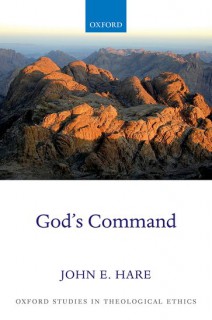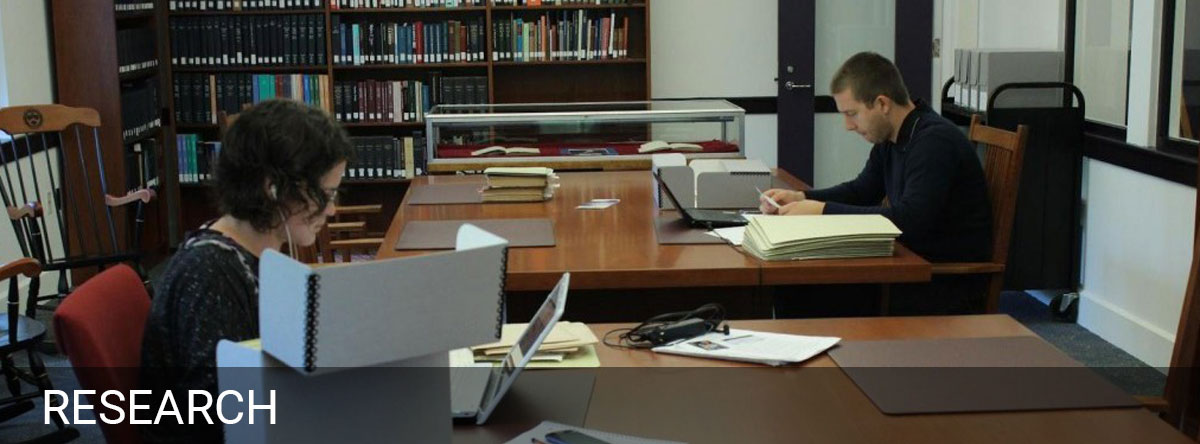 Hare, John E. God’s Command. Oxford Studies in Theological Ethics (Oxford and New York: Oxford University Press, 2015), 368 pp. $110.00 (hardcover).
Hare, John E. God’s Command. Oxford Studies in Theological Ethics (Oxford and New York: Oxford University Press, 2015), 368 pp. $110.00 (hardcover).
Reviewed by Joseph Lim (October 30, 2018)
Morality is an essential feature of religious life. Following God involves discerning which acts one ought to do and seeing them to completion. Behind this ostensibly straightforward principle lie some difficult decisions, as there are diverse metrics by which one can adjudicate between acts. The complications multiply for religious individuals, who must integrate two seemingly discordant claims: God supplies action-guiding commands and prohibitions, but we must also work out for ourselves which acts to pursue and not pursue (1). How then are divine prescriptions ordered to the tall, often bewildering task of determining what one must do? Can divine command, of itself, motivate religious persons to choose the moral life?These questions, among others, animate God’s Command by John Hare, the Noah Porter Professor of Philosophical Theology at Yale University. Though Hare rightly calls the book a “work of philosophy,” justifying his claims via philosophical argumentation rather than by reference to religious texts, he engages with a number of important theologians such as John Duns Scotus and Karl Barth (vi). Seeking to expand the conversation outside Christian circles, Hare also treats Islamic (e.g. Abū Manṣūr al-Māturīdī) and Jewish (e.g. Marvin Fox, David Novak, and Franz Rosenzweig) figures. The book’s impressive breadth notwithstanding, this review will focus primarily on Hare’s argument in relation to Christianity. Barthians in particular will find much of interest in this text. Barth’s theological insights figure prominently as Hare develops his ethical framework and attempts to show how it fits within the Christian tradition.
Chapter 1 begins immediately with Hare’s overall thesis: “what makes something morally obligatory is that God commands it, and what makes something morally wrong is that God commands us not to do it” (1). The claim requires him to first demonstrate morality’s dependence on religion overall. Thus, he provides three arguments, either drawn from or inspired by Immanuel Kant. The argument from providence states belief in God is necessary for the assurance that morality and happiness are consistent. Human beings are both rational and creatures of sense and need. Hence, their highest good is a combination of two irreducible goods: “virtue,” the disposition to live morally, and “happiness,” the fulfillment of one’s sum inclinations (8). Since it is easy to doubt this concurrence is possible (individuals often obtain happiness at the cost of morality and vice versa) one must believe in a God who providentially brings it about. The argument from grace claims that although morality requires one to rank duty over happiness, human beings are radically incapable of doing so. The key for Hare is that “while ‘ought’ implies ‘can’, ‘ought’ does not imply ‘can by our own devices’” (13). This motivates belief in a God who supplies grace to meet the moral demand. Finally, in the argument from justification, Hare claims we should be moral because God commands it. This begs the question: why should we do what God commands? If following divine commands is itself morally obligatory, the argument is viciously circular. Hare answers that the obligation to obey God is not itself generated by divine command, but rather known from its terms. “God” is the supreme good, and the good is to be “loved.” Loving God means sharing God’s ends, which includes willing what God wills for our willing, namely obedience (17-18).
If divine command is indeed the metric for moral evaluation, Hare must describe the features that allow it to bear such a role. This is the central concern of Chapter 2. He begins with an account of prescriptions in general. Whereas descriptions are meant to give truthful accounts of the world, prescriptions aim to bring about change in the world through communication of one’s desires (34). Hare expounds one kind of prescription: divine commands that generate obligation. Such commands do not permit non-compliance, imply punishment will follow from failure to carry out the command, and, crucially, exhibit internal reference to the commander’s authority (49). God, who is sovereign over all ends, supremely good, and perfectly wise to bring them about in the best possible way, has rightful authority to command us (51).
The focus of chapter 3 is the eudaemonist view that all human action aims toward happiness. Since eudaemonism motivates moral living with the promise of happiness, Hare must challenge it in order to maintain divine command as the best reason to be moral. He provides two main criticisms. First, it is not necessarily true that being moral secures happiness, because some sources of happiness fall outside morality’s purview and living morally often comes at the cost of happiness (63-64). Second, being moral only to secure happiness is an “unacceptably self-regarding” motivation (66). For the remainder of the chapter, Hare treats four attempts to defend eudaemonism from this latter criticism. Particularly noteworthy is his response to Jean Porter, who claims “the individual belongs in a nested series of comprehensive general goods: the political community, the natural world, and God’s friends” and that, necessarily, individual happiness can never conflict with these wider goods (89). Hare responds that there are obvious examples where these goods do conflict (e.g. soldiers, for the good of their communities, must kill at the cost of their own happiness). The key here is that, whereas eudaemonists assume happiness alone motivates action, Hare posits a second motivator: duty. If we accept this double-source view of motivation, the question then becomes why we should rank duty over happiness (72). Hare answers that God’s command makes it obligatory.
In Chapter 4, Hare treats deductivism, the competing view that we can deduce our obligations from “natural facts,” i.e. descriptive statements about human properties and actions (99). Finding capacity-based accounts of human nature too restrictive, Hare offers his own: “human beings are by nature such that they are fulfilled, or they reach their end, by loving God” (101). Since we cannot deduce obligations from these terms, obligatoriness is contingent upon divine command alone. Mark Murphy alleges that this leaves us with a dilemma (102). If natural facts never bear upon obligatoriness, it seems actions are moral only because God arbitrarily commands them. But if natural facts are relevant to (though not constitutive of) obligatoriness, they appear to constrain what God commands. Hare finds it unproblematic that divine commands are constrained by human nature, because they aim toward what is good forhuman beings (105). Thus, there is a relationship of “fittingness” between divine commands and human nature. Two important implications follow. First, the good “overridably constrains” and is therefore prior to the obligatory, eliminating Murphy’s worry about divine arbitrariness (105). Second, we can make presumptions, though not outright deductions, about morality from natural facts. Hare elaborates: “We should probably not take something as commanded by God if it does not fit the characteristic kind of loving of God done by a rational animal” (106). For instance, given that human beings reach their end by loving God, we may presume that God would not command us to murder an innocent person, as this would prevent her from properly loving God in the future.
In Chapter 5, Hare discusses three themes in Barth’s treatment of divine command. First, Barth emphasizes divine command’s particularity: “there is for each one of us a specific and unique form of life before God to which we are called” that develops as we attempt to obey God’s commands (144). Hare employs Scotus’ notion of “haecceity” to elaborate this point. An individual’s haecceity, constituted by her “special relations,” distinguishes her from others and generates obligations particular to her (149). Thus, all persons are obligated to love God particularly, as their unique relationships with God demand. Second, Barth claims divine sovereignty complements human freedom. Crucial here is his distinction between “natural freedom,” the capacity to choose one action or another, and “freedom” properly speaking, where one wills to do what God wills for her willing (159). Although human beings can act for the sake of either happiness or duty, they are unable to rank duty over happiness with any characteristic regularity. God’s grace, then, enables us to meet the moral demand, though not irresistibly. We must also align our wills to divine command in prayer (163). Finally, Barth catalogues five features of the phenomenology of receiving a divine command: the command is apprehended clearly and has an external origin, and the commander is familiar, authoritative, and loving (179).
Readers of Barth are sure to benefit from God’s Command. Hare’s consistent employment of Barthian concepts, combined with his sustained engagement with diverse traditions, yields a sophisticated moral framework that places Barth in direct conversation with well-established figures in ethics. This comparative approach sets Hare apart from the more focused efforts of Gerald McKenny, Paul Nimmo, John Webster, and William Werpehowski. Hare emphasizes Barth’s placement of biblical theology at the center of moral “instruction,” providing a compelling alternative to Kirk Nolan’s virtue-based and Matthew Rose’s natural-law-focused readings of Barth’s ethics (152). As Hare attempts to flesh out the mechanics of divine command, he welcomes Barth’s conclusions about human nature. The result is an account that both details the human capacities involved in the reception of divine command and takes seriously traditional Christian commitments. The Christian affirmation that God is love, for instance, far from being relegated solely to the practice of systematic theology, functions as a normative principle for discerning obligatory acts. For theologians seeking to integrate Barth’s theology with his ethical contributions, God’s Command is an exceptional resource. Philosophically rigorous, deeply attentive to theological concerns, and liberal in its interaction with various traditions, it is a must-read for all students of moral theology.
Joseph Lim, MTS Student (Moral Theology), University of Notre Dame
The views expressed here are strictly those of the author; they do not necessarily represent the views of the Center for Barth Studies or Princeton Theological Seminary.


